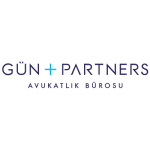Objectively, preliminary injunction decisions play a key role for the IP right holder particularly for patent holders to be dealt by Intellectual and Industrial Property Rights (IP courts) in an urgent matter due to the super technicality nature of such cases, commercial reasons, time pressure, etc.
The preliminary injunction, which appears as a way out in cases where the definitive protection is not sufficient and a temporary legal protection is needed, can be requested before an action is filed as per Article 390 of the Code of Civil Procedure (CCP), or it can be requested after the action is filed.
In this context, preliminary injunction can be defined as a temporary, broad or limited legal protection regulated against the damages that may occur in the legal situation of the plaintiff or the defendant during the proceedings until the final decision. However, it is noteworthy that a recent practice of rejecting the preliminary injunction requests without any examination is adopted by the Istanbul Civil Courts for IP courts contrarily to the legal regulations, definitions and purpose.
Within the scope of this article, this position of the IP courts will be evaluated in the light of a recent district court decision.
IP courts have given decisions of rejection in the applications for the determination of evidence and preliminary injunction on the grounds that these requests require a full trial on file without setting hearing a date, any examination and evaluation.
However, in patent and more specifically pharmaceutical patent disputes, where technical examination and evaluation are very critical and a lot of information has not been made public, it is obvious that there is a need to determine the evidence in order to reach a decision on whether to file the main action in the first place.
Again in this direction, while it is stipulated by the clear regulation of the law that the preliminary injunction can be granted before filing an action, it is not lawful to give a decision of rejection by stating that a main action should be filed without making any evaluation, as if there was no such provision and it was not possible to grant a preliminary injunction without filing the main action.
It should be kept in mind that in any way either filing preliminary injunction application or filing a main action together with preliminary injunction does not make any difference since in both ways the court should bring the expert report to render his or her decision on such request considering technical examination is inevitably required in such patent cases.
An IP court's refusal decision, which was given with this reasoning, was recently appealed before the district court and the district court dismissed the decision on the grounds that "while the preliminary injunction conditions should be evaluated in line with IP Code Article 159 and CCP Article 389 and the following articles, the decision to reject the preliminary injunction request on the grounds that it requires a full trial" was not correct, and sent the file back to the Court of First Instance for consideration of the request after receiving an expert report regarding the conditions of the preliminary injunction and the request.
In our opinion, this decision of the district court is extremely accurate and sets a precedent against similar decisions of the IP courts of first instance. As a matter of fact, as mentioned above, the preliminary injunction is one of the means of temporary legal protection in accordance with Articles 389 et al. of CCP, and it is regulated by the legislator against the damages that may occur in the legal situation of the plaintiff or the defendant in relation to the subject of the case, during the trial that continues until the final decision.
Therefore, the decision to reject the request, stating that the decision on this matter will be made at the end of the full trial, without any examination and evaluation, is an inconsistent practice and has no bearing on the purpose and nature of preliminary injunction protection and the patent protection, which is an intangible property right guaranteed by the constitution.
On the other hand, Turkey’s Industrial Property Code also states that “Persons who have the right to file a lawsuit pursuant to this Code may request from the court to grant a preliminary injunction to ensure the effectiveness of the final decision to be given, provided that they prove that the use subject to the lawsuit is taking place in the country in a way that constitutes an infringement of their industrial property rights or that serious and effective studies have been carried out for in this way.”
Within the scope of all these provisions of the law, ignoring the provisions of the relevant codes by not considering the evidence and the request of the claimant, who collects and submits the evidence based on the request for preliminary injunction, does not constitute an acceptable practice. Therefore. the latest decision of the district court in this regard has great importance.
Partner, Gun + Partners
Aysu Eryaşar
Associate, Gun + Partners












